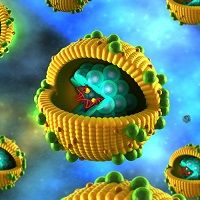DAA's Still Out of Reach for Poor Nations?
Hepatitis C direct acting antivirals are effective but remain out of reach in many nations, a WHO study showed.

Late last year some drug makers said they would allow manufacturers of generics to copy their direct-acting antivirals (DAAs) for hepatitis C to make them available for sale in poor nations at an affordable price.
A new World Health Organization (WHO) analysis of price disparities shows what a difference that could make to patients who need them.
While these DAAs improve outcomes and patients’ ability to tolerate treatment, high prices limit access and threaten the ability of countries to deliver the required care, the study of 30 nations has found.
Swathi Iyengar, MSc, Technical Officer for Policy, Access, and Use/Essential Medicines and Health Products and colleagues, all at the WHO in Geneva, Switzerland, published their research in PLOS on May 31, 2016.
For their analysis they evaluated 2015 prices of 12-weeks treatments with two direct-acting antivirals : sofosbuvir (Sovaldi/Gilead Sciences Inc.) and ledipasvir/sofosbuvir (Harvoni/Gilead).
They adjusted for currency differences and potential discounts. They compared these prices to the annual total expenditures on medicines for each country.
Their analysis relies on the accuracy of price information and on estimates of infected people, which they obtained from existing studies. The prices don’t include diagnostic testing, supplementary treatments or health service costs.
The US. had the highest median nominal price for a 12-week course of sofosbuvir at $64,680 and for ledipasvir/sofosbuvir at $72,765.
The UK. had the lowest price for the combination treatment at $43,215.
Central and Eastern European countries had sharply higher prices when adjusted for their purchasing power parity (PPP). Sofosbuvir in Poland was $101,063; ledipasvir/sofosbuvir came in at a PPP-adjusted $118,754.
Treating the entire HCV viremic population would amount to at least one-tenth of total patient expenditure across the countries studied, the authors say.
That cost ranges from a PPP-adjusted 10.5% of total pharmaceutical expenditure in the Netherlands to 190.5% of total pharmaceutical expenditure in Poland.
In 12 nations, a course of sofosbuvir equaled 1 year or more of a worker’s average annual wage. In Turkey, the burden was 5.28 years.
"Current prices of these medicines are variable and unaffordable globally,” the authors conclude. “These prices threaten the sustainability of health systems in many countries and prevent large-scale provision of treatment.”
Some 80 million people live with HCV viremia , also known as chronic HCV infection. If untreated, the ailment can cause liver cirrhosis and cancer, leading to an estimated 700,000 deaths a year worldwide, according to the paper.